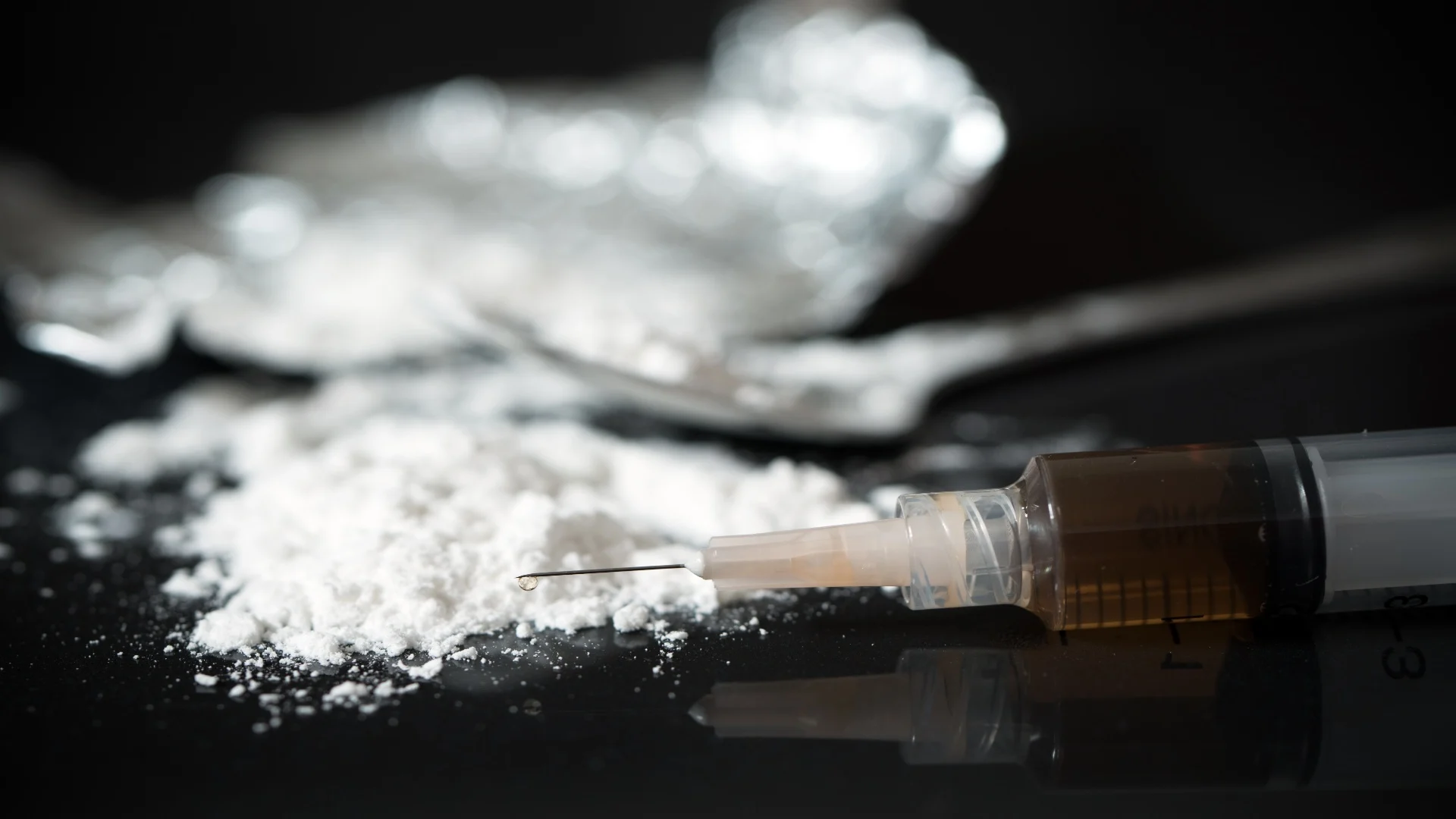Drug and Alcohol
Recognizing the Signs of Meth Addiction

Learn to identify the signs of meth addiction early. Identify key behavioral and physical warning signs to help someone receive the support they need promptly.
Meth addiction can quietly take hold, leaving you confused, worried, and unsure of what’s happening to someone you love—or even to yourself. You may see changes in behavior, health, or emotions, but not know what they mean. These changes can feel alarming and isolating.
The signs of meth addiction often appear before anyone is ready to admit there’s a problem. But spotting them early can make all the difference. At The Edge Treatment Center, we help individuals and families recognize these warning signs and take the first step toward recovery with compassionate, personalized support and proven treatment strategies.
What Is Methamphetamine?

Methamphetamine—commonly known as meth or crystal meth—is a highly potent stimulant that affects the central nervous system. It usually appears as a white, bitter-tasting powder or as shiny, bluish-white crystals. Meth can be smoked, snorted, injected, or taken orally, and each method delivers a fast-acting, intense high.
How Meth Affects the Brain
Meth produces an intense rush by flooding the brain with dopamine—a chemical linked to pleasure, motivation, and reward. This dopamine spike is significantly higher than what occurs naturally, resulting in a powerful feeling of euphoria.
However, the brain quickly adapts, reducing its dopamine production and making it harder for users to feel joy without the drug. This is what leads to dependency.
Why Meth Addiction Develops So Quickly
Meth addiction can develop alarmingly fast—even after only a few uses. As tolerance builds, users need more of the drug to achieve the same effects. The combination of powerful euphoria, rapid tolerance, and severe withdrawal symptoms makes meth one of the most addictive substances. At The Edge Treatment Center, we’ve helped many individuals break free from this cycle through personalized, evidence-based treatment.
Common Physical Signs of Meth Addiction
Recognizing the physical signs of meth addiction is often the first step toward getting someone the help they need. Meth causes many visible changes that can appear quickly and become severe over time. At The Edge Treatment Center, we encourage you to look for the following warning signs if you suspect meth use.
Sudden and Extreme Weight Loss
Meth suppresses appetite and speeds up metabolism, leading to rapid and often dangerous weight loss. Individuals may look gaunt, malnourished, or physically frail in a short period.
Severe Dental Issues (“Meth Mouth”)
One of the most telling signs of meth addiction is “meth mouth”—a condition marked by rotting teeth, inflamed gums, and dry mouth. Meth use decreases saliva production, increases teeth grinding, and causes poor dental hygiene, all of which contribute to serious oral health problems.
Skin Sores, Scabs, and Burns
Meth users often pick at their skin due to sensations of bugs crawling under it—a condition called formication. This leads to open sores, scabs, and infections. Additionally, burns around the lips or fingers may occur from smoking meth.
Dilated Pupils and Involuntary Movements
Dilated pupils, twitching, facial tics, or jerky body movements are common physical responses to meth’s stimulant effects. These signs often appear alongside restlessness and increased physical activity.
Poor Hygiene and Physical Deterioration
Over time, meth use leads to an evident decline in personal care. People may stop bathing, wearing clean clothes, or grooming themselves altogether. Their appearance may change drastically, often looking older than their actual age.

We’re Here To Help You Find Your Way
Would you like more information about mental health or drug addiction? Reach out today.
Why Early Recognition Is Critical

In the beginning, the signs of meth addiction can be subtle—mood swings, fatigue, or changes in appetite may seem like everyday stress or personal issues. Because these symptoms can be easy to dismiss, many people delay seeking help until the addiction has taken a stronger hold. Unfortunately, that delay can make recovery more difficult.
Early Treatment Improves Recovery Outcomes
The sooner meth addiction is identified, the more effective treatment can be. Early intervention enables quicker stabilization, reduces damage to physical and mental health, and facilitates a smoother recovery process. At The Edge Treatment Center, we’ve found that individuals who begin treatment early often require less intensive care and have a higher chance of long-term success.
Preventing Long-Term Brain and Organ Damage
Meth addiction isn’t just behavioral—it causes fundamental, lasting changes to the brain and body. Long-term use can damage memory, emotional control, cardiovascular function, and even liver and kidney health. Catching addiction early is one of the most important ways to protect long-term well-being and prevent irreversible harm.
What to Do If You Suspect Meth Addiction
If you’re noticing changes that align with the signs of meth addiction, it’s important not to dismiss them. Sudden weight loss, erratic behavior, isolation, or physical deterioration are red flags that shouldn’t be ignored. Addiction thrives in silence and denial—the sooner it’s addressed, the better the chances of recovery.
Lead with Compassion, Not Judgment
Approaching someone about a possible addiction is never easy. But coming from a place of concern and empathy can make all the difference. Avoid blame or confrontation. Instead, express your observations and how their behavior is affecting them and others. Let them know you care and that help is available.
Encourage Professional Support
Recovery from meth addiction requires more than willpower. While your support matters deeply, professional treatment is essential. Avoid enabling behaviors, such as giving money, making excuses, or covering for them. Instead, guide them toward seeking help from experienced professionals.
How We Can Help at The Edge Treatment Center
At The Edge Treatment Center, we understand how painful and overwhelming it can be to face a loved one’s addiction. That’s why we offer compassionate, guided support for families—helping you understand how to approach your loved one, plan an effective intervention, and connect them with the personalized treatment they need. You're not alone, and neither are they—we’re here to walk with you every step of the way.

We’ll Lead You to New Heights
Do you have more questions about mental health or drug addiction? Reach out.
How The Edge Treatment Center Can Help
At The Edge Treatment Center, we provide compassionate, expert care to help individuals break free from meth addiction and reclaim their lives.
Personalized, Evidence-Based Care
At The Edge Treatment Center, we know that no two people experience addiction in the same way. That’s why our approach to meth addiction recovery is personalized and grounded in proven, evidence-based practices. From the moment you reach out, our team works closely with you to develop a customized treatment plan tailored to your unique needs, challenges, and goals.
Comprehensive Treatment Services
Recovery from meth addiction requires more than just stopping use—it demands healing on every level. We offer a full continuum of care, including:

Medically supervised detox to manage withdrawal safely
Individual therapy to explore the root causes of addiction
Group therapy for connection, accountability, and peer support
Family therapy to rebuild trust and restore relationships
Dual diagnosis treatment for co-occurring mental health disorders
Each element of care is designed to support lasting recovery, not just temporary change.
Ongoing Support for Long-Term Sobriety
Recovery doesn’t end after treatment—it’s a lifelong journey. That’s why we provide continued care and aftercare planning, helping you build a sustainable, substance-free life. Our support includes relapse prevention, alumni programs, and access to community resources to help you stay connected and thrive.
With You Every Step of the Way
From your first phone call to long after you leave our center, we’re here for you. At The Edge Treatment Center, you’ll never have to face addiction alone. We’re committed to walking with you—step by step—toward a better, healthier future.
Seeing Signs of Meth Addiction? We’re Here to Help
If you’re noticing the signs of meth addiction in yourself or someone you care about, don’t wait to take action. Early recognition can be the turning point toward lasting recovery. At The Edge Treatment Center, we understand what you’re going through—and we’re here to help.
Our team offers compassionate, personalized treatment designed to heal both the body and mind. Whether you need support for yourself or guidance on helping a loved one, we’ll walk with you every step of the way. Reach out today and take the first step toward a healthier, drug-free future.
What Are the Early Signs of Meth Addiction?
Early signs include sudden weight loss, erratic behavior, insomnia, mood swings, and neglect of hygiene. You may also notice dilated pupils, skin sores from picking, and increased secrecy. These symptoms often appear before a person admits there’s a problem.
How Can I Tell if Someone Is High on Meth?
Someone high on meth may show extreme energy, rapid speech, dilated pupils, twitching, or repetitive movements. They may appear paranoid, restless, or unusually talkative. Physical signs and intense behavioral shifts often occur together during a meth high.
Can Meth Addiction Be Reversed?
Yes, meth addiction is treatable. With professional care—including detox, therapy, and aftercare—many people recover and rebuild their lives. The earlier treatment begins, the better the chances of reversing damage and achieving long-term sobriety.
What Are the Long-Term Effects of Meth Addiction?
Chronic meth use can cause severe dental issues, memory loss, paranoia, emotional instability, and heart problems. Long-term effects also include cognitive decline and lasting brain changes that impact judgment, behavior, and emotional regulation.
What Is the Best Treatment for Meth Addiction?
Effective treatment includes behavioral therapy (like CBT), individual and group counseling, family support, and dual diagnosis care. At The Edge Treatment Center, we provide personalized treatment plans that support recovery and promote long-term healing.

We’re Here To Help You Find Your Way
If you or a loved one is struggling with addiction, there is hope. Our team can guide you on your journey to recovery. Call us today.
Written by
The Edge Treatment Center
Reviewed by
 Jeremy Arzt
Jeremy ArztChief Clinical Officer
Drug and Alcohol
September 28, 2025
